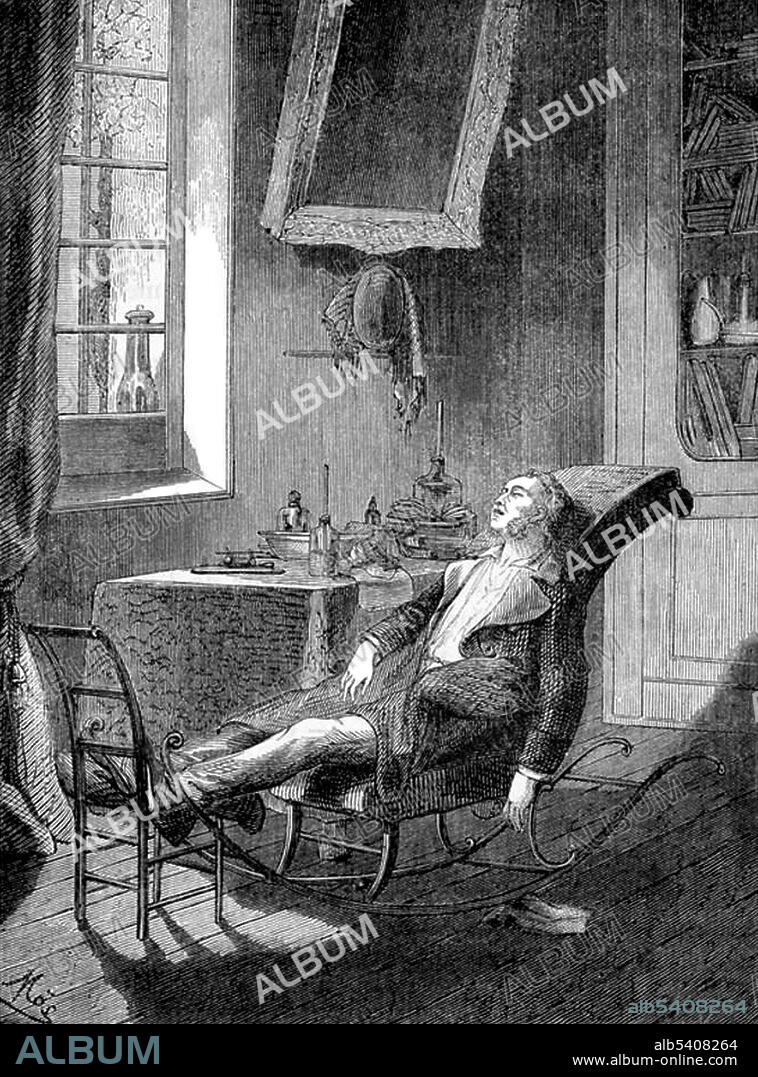alb5408264
Charles Thomas Jackson Experimenting with Ether,1868

|
Añadir a otro lightbox |
|
Añadir a otro lightbox |



¿Ya tienes cuenta? Iniciar sesión
¿No tienes cuenta? Regístrate
Compra esta imagen.
Selecciona el uso:

Título:
Charles Thomas Jackson Experimenting with Ether,1868
Descripción:
Ver traducción automática
Charles Thomas Jackson (June 21, 1805 - August 28, 1880) was an American physician and scientist who was active in medicine, chemistry, mineralogy, and geology. He was a brother-in-law of Ralph Waldo Emerson and a graduate of the Harvard Medical School. In 1829 he traveled to Europe where he studied both medicine and geology for several years. Upon returning to the United States he played an active role in the new state geological survey movement, serving successively between 1836 and 1844 as the state geologist of Maine, Rhode Island, and New Hampshire. Jackson is particularly remembered for his involvement in a series of often bitter priority conflicts that left their marks on the scientific and social scenes of his day. They followed a standard pattern: a discovery would be announced by someone, Jackson would then claim prior discovery, and a controversy would ensue. Some of the conflicts included: the telegraph (Samuel F. B. Morse), the digestive action of the stomach (William Beaumont), and the anesthetic effects of ether (William T. G. Morton). By 1873 Jackson was afflicted with mental illness and spent the remainder of his life in retirement. He died at the age of 85.
Crédito:
Album / Science Source
Autorizaciones:
Modelo: No - Propiedad: No
¿Preguntas relacionadas con los derechos?
¿Preguntas relacionadas con los derechos?
Tamaño imagen:
3188 x 4308 px | 39.3 MB
Tamaño impresión:
27.0 x 36.5 cm | 10.6 x 14.4 in (300 dpi)
Palabras clave:
1868 • AMERICA • ANESTESIA • BLANCO Y NEGRO • CIENTIFICO • ESTADOS UNIDOS DE AMERICA • FAMOSA • FAMOSO • HISTORIA • HOMBRE • MINERALOLOGO • PERSONALIDAD • RETRATO DE HOMBRE • SIGLO XIX
 Pinterest
Pinterest Twitter
Twitter Facebook
Facebook Copiar enlace
Copiar enlace Email
Email
